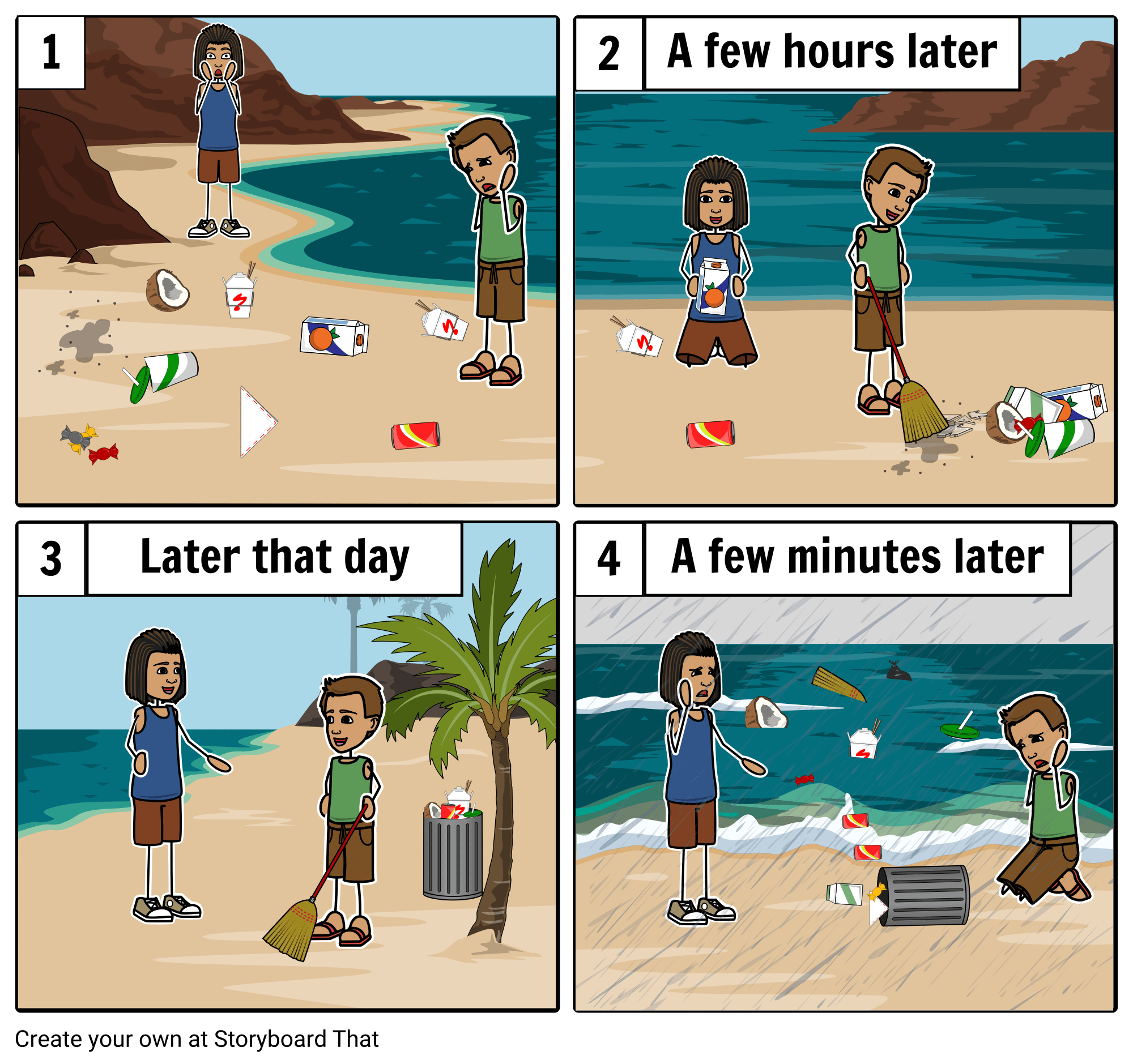Please look at the comics below and narrate the story.
This is a story about two boys who wanted to keep the environment clean.
You have 1 minute to prepare.
(1 minute to prepare)
You have 2 minutes to narrate the story.
Describe each picture in 3 sentences.
Your story should begin with the sentence below:
One day, two boys were on the shore.

Please look at the fourth picture.
If you were the boy in blue shirt, what would you be thinking?
Now, I will ask you another question. Please give 2 reasons to support your answer.
Should everyone be responsible in cleaning up garbage in public places?
Now, I will ask you another question. Please give 2 reasons to support your answer.
Do you think the government should do more to protect the environment?
Now, I will ask you another question. Please give 2 reasons to support your answer.
Do you think the government should invest in programs that aim to develop the skills of the youth?






























 GOOD
GOOD 
















